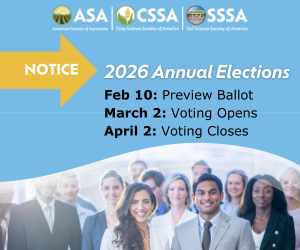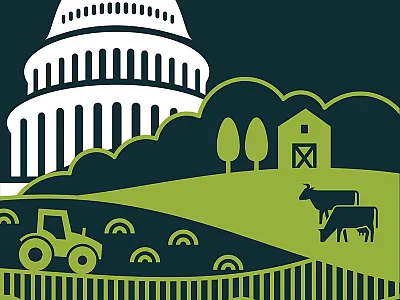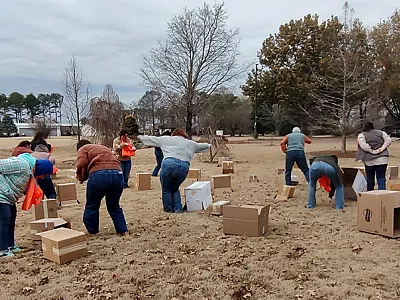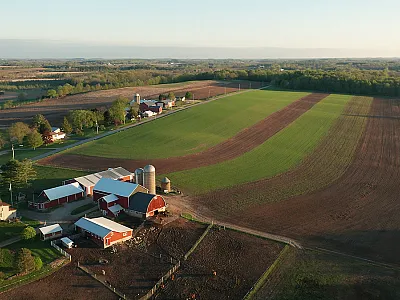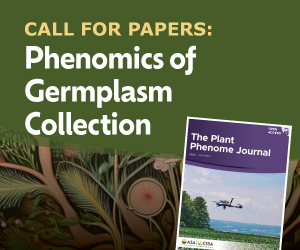Growing Your Professional Network
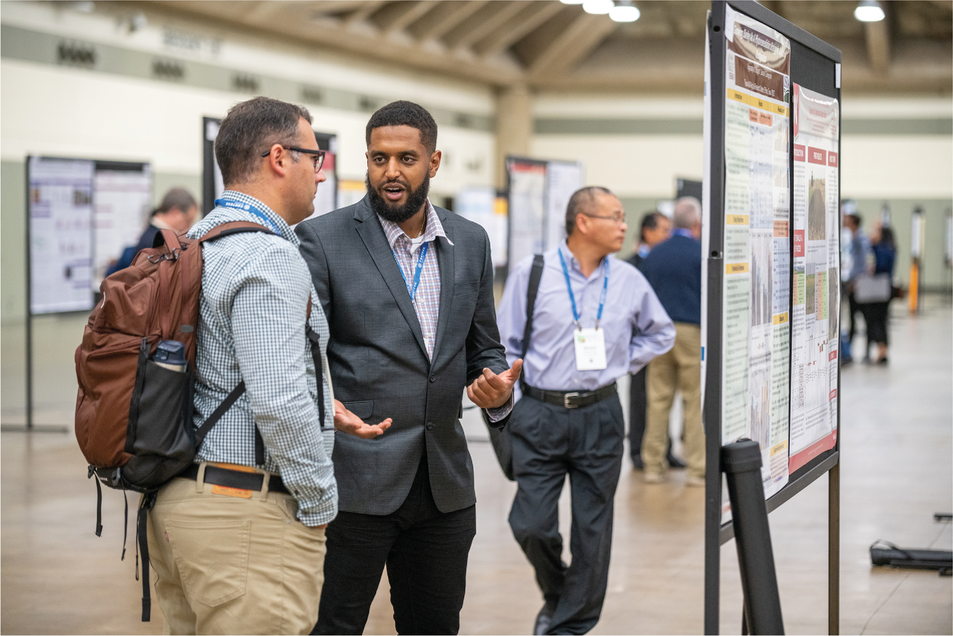
Greetings! This month, I am pleased to give you an update on our forthcoming 2023 ASA, CSSA, and SSSA International Annual Meeting “Open Science Inspires,” from Oct. 29 to Nov. 1, 2023 in St. Louis, MO and with a limited virtual meeting (acsmeetings.org). We received about 15% more voluntary abstract submissions this year than last year, which is great! I expect that our Annual Meeting will be a vibrant, exciting gathering of agronomic, crop, and soil science from across the United States together with our international attendees.
The ASA Annual Meeting, held in conjunction with the CSSA and SSSA Annual Meetings, is an outstanding opportunity for us to connect with each other and make new scientific friends. Engaging with your peers to get their recognition and support of your work is called professional networking. But what do we really mean by “networking”? If you already have a social media presence, do you need to work on your “network”? If you are shy, can you skip the networking part of the meeting?
The Value of Networking
Our social relationships are at least as important for our health as eating nutritious food and exercising. We tend to make social connections based on common interests, values, and time devoted to a particular activity. If you are spending 35+ hours a week working in agronomy, chances are that you have already connected with other professions in the agronomic sciences and related fields. Your professional network serves several purposes.
It provides you with a community who understands the challenges of your work and applauds your successes. The more specialized you become in your agronomic field, the more difficult it is to find colleagues who truly appreciate the nuances, uncertainties, and difficulties of your day‐to‐day research tasks. It can be validating to know that you are not alone! Talking with other researchers may uncover a solution to problems that have left you feeling confounded for days, weeks, or longer. On the flip side, your helpful suggestion to a scientific colleague may come at a key moment for them. We are all in the agronomic sciences together!
Job opportunities are often shared through professional networks. Being part of a network allows you to take advantage of personal and business connections rather than relying solely on your resume or curriculum vitae (CV) to convey your abilities. Employers must necessarily check the education, qualifications, and interpersonal skills of the individuals they hire. As a job seeker, you will need trusted professionals in your network who are willing to vouch for your suitability for a particular job by providing a verbal or written reference. Your professional network serves several purposes, such community support, job opportunties and career advancement, and mentoring. Photo by Remsberg.
As a member of a professional network, you will also gain access to the unadvertised jobs market. You may not know this, but many employers prefer to recruit through “word of mouth” rather than by a formal recruitment process. In the United States, it is estimated that 1.5 million available jobs are not advertised. Since only 45 jobs out of every 100 jobs are advertised, this means > 50% of the available positions are hired informally. Those who find jobs in the hidden job market are individuals who effectively network with other people. The ASA Annual Meeting is a great place to make contacts and impress a potential employer with your skills, energy, and motivation to work in agronomy!
Career development and advancement often require you to step outside your comfort zone and engage in activities that extend beyond the responsibilities of your present position. Employers are on the lookout for employees who show signs of being ready to take on a new role in their organization, but you could also gauge your readiness for a new challenge by applying for a position at another institution. As you prepare for your next career step, it is a great idea to consult with others in your professional network who know your field well. They can advise you on what activities and skills will be the most effective for you to demonstrate career development, helping you move to the next position or get that well‐deserved promotion.
Mentoring Matters
Speaking of advice, you are likely to find many mentors in your professional network. Since a professional network is dynamic and cooperative, one of the functions of your professional network is to provide a safe space where you can ask for help and give help in return. This often occurs informally, in casual conversation or while having a meal together, when people tend to share and discuss various issues they are having at work or in their research. Mentoring can also occur formally, when mentors are matched with mentees. In formal mentoring, there is an expectation that the mentor and mentee will meet regularly to discuss various topics—research progress, professional growth, managing interpersonal relationships, establishing a work–life balance, and so on.
All ASA members can reap the rewards of informal mentoring. As an ASA member, you are most welcome to participate actively in the sections and communities that best align with your interest. Please feel free to post to the discussion boards (agronomy.org/discussion‐boards/) when you have ideas or information to contribute to your section or community. When you need scientific advice, you can find world‐class experts in our member and scientific expertise directories (agronomy.org/membership/directories). Finally, the next ASA Annual Meeting, as well as your local branch or chapter meeting, is a wonderful opportunity for you to meet colleagues with shared interests that could yield many possibilities—job offers, research partnerships, co‐authorship on science papers, invitations, etc.
ASA also offers formal mentoring programs targeted at young professionals. The Golden Opportunity Scholars program (goldenopportunityscholars.org/) supports undergraduate students seeking to attend further education in the agronomic sciences. The successful students are paired with a mentor who is a Society professional with similar interests and career goals. Greenfield Scholars are also undergraduate students, and these students express an interest to enter the industry upon graduation and pursue the Certified Crop Adviser (CCA) or Certified Professional Agronomist (CPAg) profession and certification. Their mentor is a CCA in their region, who can help them understand the industry and identify potential clients in the area.
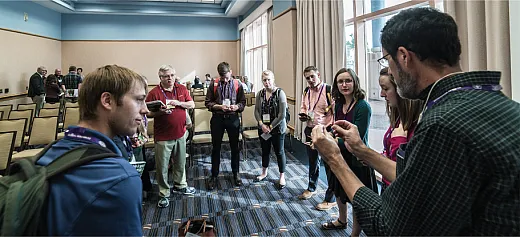
If you know of meritorious undergraduates who would benefit from these programs, or you are interested to be a mentor, please contact Brigid Moran, Manager of Student and Early Career Programs, at bmoran@sciencesocieties.org or 608‐268‐4949.
ASA is also proud to be part of the ASA, CSSA, and SSSA Peer Review Mentoring Program (agronomy.org/publications/journals/peer‐review‐mentorship), developed for early career professionals (graduate students or postdoctoral fellows) to receive hands‐on peer review training over the course of six months. Accepted applicants will be paired with an experienced mentor in their field and will be guided through the process of reviewing for an ASA, CSSA, or SSSA journal. To learn more about this publications opportunity, please contact Matt Wascavage, Director of Publications, at mwascavage@sciencesocieties.org or 608‐819‐3916.
Can You Skip Networking If You Are on Social Media or Are Shy?
Earlier in this article, I asked the question, “If you already have a social media presence, do you need to work on your ‘network’?” I asked Google and the answer I received in <1 second was a resounding YES! (according to five sources). Research finds that face‐to‐face interactions are more positive than online interactions because trust between individuals is very strongly rooted in nonverbal cues, including facial expressions, tone of voice, and firmness of the handshake. In‐person interactions are more focused and less prone to distractions. This helps you to find common ground and align with the other person more quickly and effectively with less chance of being misinterpreted. Being with another person in the flesh creates a stronger foundation for a long‐lasting professional relationship than meeting through social media.
I am sure you can already guess my answer to the other question I asked earlier: “If you are shy, can you skip the networking part of the meeting?” Answer—NO! To begin with, no one at the ASA meeting knows that you are shy. So you can be “not shy” when you come to the ASA meeting. Being “not shy” means that you greet someone you don't know (smile and wave, say hello). With advance preparation, you can think of different ways to start a conversation, ask a question, or complement someone on their interesting agronomic research. If you are intimidated by the idea of asking a question in an oral presentation session, you could plan to have a conversation with a smaller group in the exhibit hall or an individual presenter in the poster sessions. Practice introducing yourself, and plan to address your new scientific friends by name to build a strong personal connection. I hope these ideas will help you feel comfortable in growing your professional network at the next ASA meeting.
Please do not hesitate to contact me and the other members of your ASA Board of Directors, as well as your section and community leaders, with your ideas, stories, comments, questions, and concerns. We look forward to hearing from you!
Text © . The authors. CC BY-NC-ND 4.0. Except where otherwise noted, images are subject to copyright. Any reuse without express permission from the copyright owner is prohibited.



